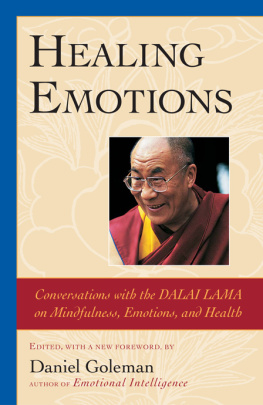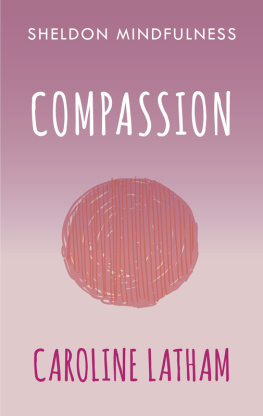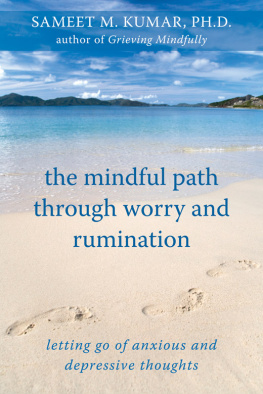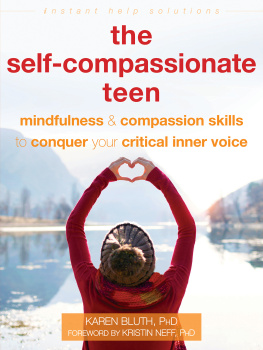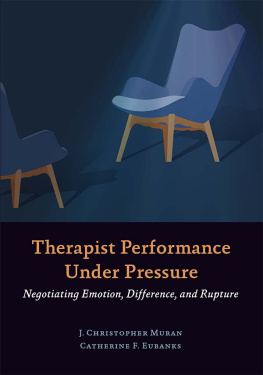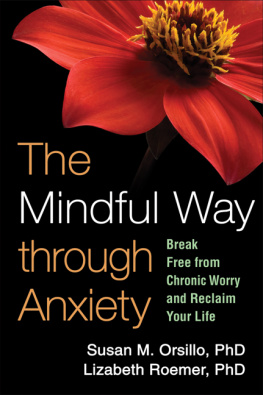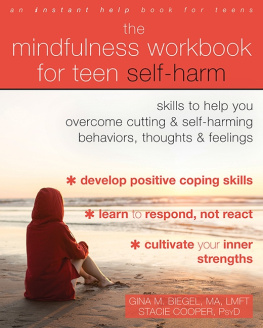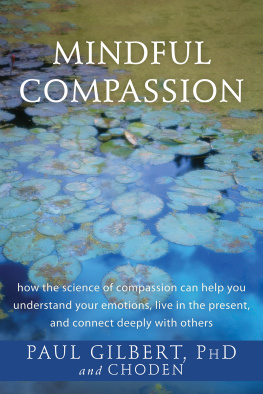the mindful path
to self-compassion
Freeing Yourself
from Destructive Thoughts
and Emotions
CHRISTOPHER K. GERMER P H D
Foreword by Sharon Salzberg

THE GUILFORD PRESS
New York London
Praise for the mindful path to self-compassion
In this important book, Christopher Germer illuminates the myriad synergies between mindfulness and compassion. He offers skillful and effective ways of making sure that we are inviting ourselves to bathe in and benefit from the kind heart of awareness itself, and from the actions that follow from such a radical and sane embrace.
Jon Kabat-Zinn, PhD, author of Arriving at Your Own Door and Letting Everything Become Your Teacher
Self-compassion is the ground of all emotional healing, and Dr. Germer has produced an invaluable guide. Written with great clarity, psychological wisdom, and warmth, this book will serve anyone seeking practical and powerful tools that free the heart.
Tara Brach, PhD, author of Radical Acceptance
Explains both the science and practice of developing kindness toward ourselves and others. Dr. Germer offers powerful and easily accessible steps toward transforming our lives from the inside out. Its never too late to start along this important path.
Daniel J. Siegel, MD, author of The Mindful Brain
An elegant and practical guide to cultivating self-compassion, by a dedicated and wise clinician and meditation teacher. The author offers time-honored practices and exercises with the potential to illuminate and transform the background chatter of our minds that determines so much of the course of our lives.
Samuel Shem, MD, author of The House of God
To my mother, who taught me the meaning of compassion
Contents
Part I
discovering self-compassion
Part II
practicing loving-kindness
Part III
customizing self-compassion
W hy is it so hard to extend the same kindness to ourselves that many of us gladly offer to others? Maybe its because in our conventional way of thinking in the West we tend to view compassion as a gift, and bestowing it on ourselves seems selfish or inappropriate. But the ancient wisdom of the East tells us that loving-kindness is something everyone needs and deserves, and that includes the compassion we can give to ourselves. Without it, we blame ourselves for our problems, for our inability to solve them all, for feeling pain when painful events occurall of which usually end in our feeling even more pain.
The idea of self-compassion may seem so alien that we would not know where to begin even if we decided it might be a good capacity to develop. Modern neuroscience and psychology are just beginning to explore what meditative traditions have accepted for ages: that compassion and loving-kindness are skillsnot gifts that were either born with or notand each one of us, without exception, can develop and strengthen these skills and bring them into our everyday lives.
This is where The Mindful Path to Self-Compassion steps to the fore. In this book Dr. Christopher Germer lays out the architecture of this skill development: the vision of freedom compassion can offer, the essential role of self-compassion, the path to realizing it rather than just thinking about it, and the practical tools, such as mindfulness, we need to effect that transformation.
Buddhist psychological analysis regards qualities like loving-kindness as the direct antidote to fear. Whether hampered by the inhibiting fear of feeling we are not enough and could never be enough, or the raging fear that courses through us when we see no options whatsoever, or the pervasive fear we sometimes feel when we must take a next step and cannot sense how or where, in the midst of fear we suffer. Loving-kindness and compassion, in contrast to fear, reaffirm the healing power of connection, the expansiveness of a sense of possibility, the efficacy of kindness as a catalyst for learning. Whether extended to ourselves or others, the intertwined forces of loving-kindness and compassion are the basis for wise, powerful, sometimes gentle, and sometimes fierce actions that can really make a differencein our own lives and those of others. The true development of self-compassion is the basis for fearlessness, generosity, inclusion, and a sustained loving-kindness and compassion for others.
Whether you have already begun to seek relief from suffering through meditative traditions like mindfulness or you are simply open to anything that might free you from chronic emotional pain and mental rumination, this book will serve as an inspiring road-map. In the following pages you will find a scientific review, an educational manual, and a practical step-by-step guide to developing greater loving-kindness and self-compassion every day.
S HARON S ALZBERG
Insight Meditation Society, Barre, Massachusetts
W riting can be lonely work, but with so many people speaking through the pages of this book, thats hardly been the case. I had the privilege of gathering the voices of kindness and inspiration that have been resonating in my mind for a long timeteachers, family, friends, patientsand savored their company late into the night for almost two years. Now that the project is completed, its a privilege to mention some of them by name.
First Id like to thank my wonderful team of editors at The Guilford Press: Kitty Moore, Linda Carbone, and Chris Benton. Kittys faith in the project, editorial style, and practical wisdom transformed a nascent idea into reality. Lindas graceful editing lifted this manuscript to its current level of readability, and Chriss conceptual clarity gave the book its overall coherence and flow. If these dedicated people werent editors, theyd be coauthors.
My friends and colleagues at the Institute for Meditation and Psychotherapy have been invaluable, not only in shaping the content of this book but also in their unstinting emotional support. Its been a family affair in the best sense of the word. My brothers and sisters include Paul Fulton, Trudy Goodman, Sara Lazar, Bill and Susan Morgan, Stephanie Morgan, Andrew Olendzki, Tom Pedulla, Susan Pollak, Ron Siegel, Charles Styron, and Jan Surrey. Im especially indebted to Sara for her advice on all things scientific, to Andy for anchoring my thinking in the 2,500-year-old tradition of Buddhist psychology, to Ron for keeping it real, to Jan for her exquisite and abiding sense of interconnection, and to Trudy for lending a touch of bold tenderness to the subject matter.
My personal practice of self-compassion has been inspired by the writings and presence of a number of special teachers. They are His Holiness the Dalai Lama, Sharon Salzberg, Jon Kabat-Zinn, Tara Brach, Pema Chdrn, Joseph Goldstein, Jack Kornfield, and Thich Nhat Hanh. Furthermore, my understanding of self-compassion would be nowhere if not for the groundbreaking work of my friend and colleague Kristin Neff and researchers Paul Gilbert and Mark Leary, and for the bold new understanding of therapeutic change by Mark Epstein, Steven Hayes, Marsha Linehan, Zindel Siegel, and their collaborators. Thanks also to Richard Davidson, Daniel Gole-man, and Daniel Siegel for inspiring me and countless other readers around the world to look at human emotion and interpersonal relationships from a profoundly unselfish, scientific perspective.
Other friends and colleagues who made this book possible were Jay Efran, for teaching me in graduate school that all psychological theories are provisional; Les Havens, for demonstrating the importance of being human in psychotherapy; Rich Simon, for his encouragement and gentle writing lessons; Robert and Barry, for the best writing fuel this side of the Charles River; Carol Hosmer, for keeping my practice running; Rob Guerette, for taking a chance on mindfulness and self-compassion; and Chip Hartranft, Gib and Faye Henderson, Claudia Ladensohn, and Mark Sorensen, for being friends in need, indeed.


